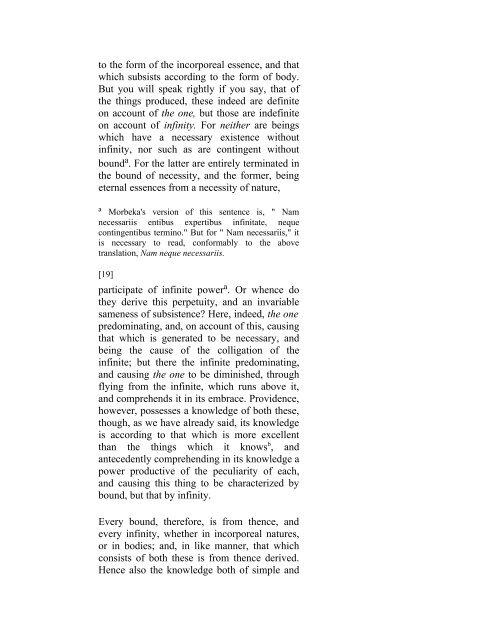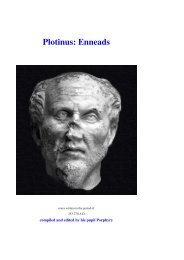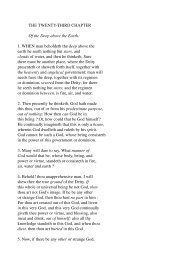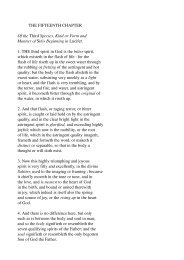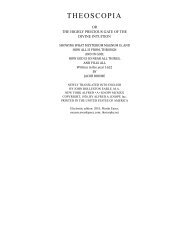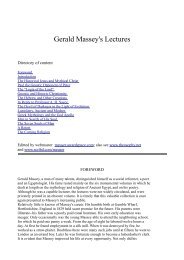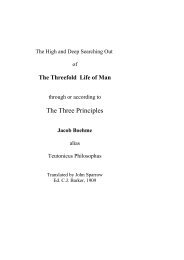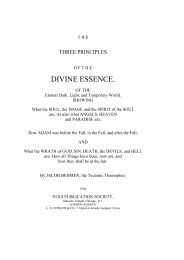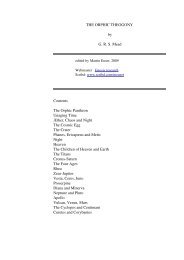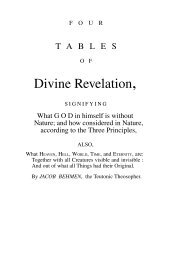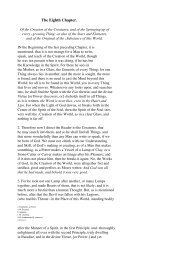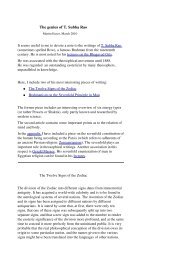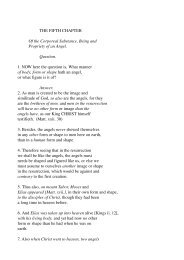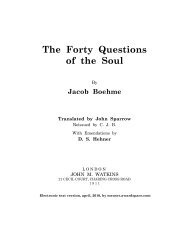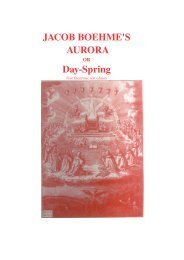PROCLUS, THE PLATONIC SUCCESSOR
PROCLUS, THE PLATONIC SUCCESSOR
PROCLUS, THE PLATONIC SUCCESSOR
Create successful ePaper yourself
Turn your PDF publications into a flip-book with our unique Google optimized e-Paper software.
to the form of the incorporeal essence, and that<br />
which subsists according to the form of body.<br />
But you will speak rightly if you say, that of<br />
the things produced, these indeed are definite<br />
on account of the one, but those are indefinite<br />
on account of infinity. For neither are beings<br />
which have a necessary existence without<br />
infinity, nor such as are contingent without<br />
bound a . For the latter are entirely terminated in<br />
the bound of necessity, and the former, being<br />
eternal essences from a necessity of nature,<br />
a Morbeka's version of this sentence is, " Nam<br />
necessariis entibus expertibus infinitate, neque<br />
contingentibus termino." But for " Nam necessariis," it<br />
is necessary to read, conformably to the above<br />
translation, Nam neque necessariis.<br />
[19]<br />
participate of infinite power a . Or whence do<br />
they derive this perpetuity, and an invariable<br />
sameness of subsistence? Here, indeed, the one<br />
predominating, and, on account of this, causing<br />
that which is generated to be necessary, and<br />
being the cause of the colligation of the<br />
infinite; but there the infinite predominating,<br />
and causing the one to be diminished, through<br />
flying from the infinite, which runs above it,<br />
and comprehends it in its embrace. Providence,<br />
however, possesses a knowledge of both these,<br />
though, as we have already said, its knowledge<br />
is according to that which is more excellent<br />
than the things which it knows b , and<br />
antecedently comprehending in its knowledge a<br />
power productive of the peculiarity of each,<br />
and causing this thing to be characterized by<br />
bound, but that by infinity.<br />
Every bound, therefore, is from thence, and<br />
every infinity, whether in incorporeal natures,<br />
or in bodies; and, in like manner, that which<br />
consists of both these is from thence derived.<br />
Hence also the knowledge both of simple and


